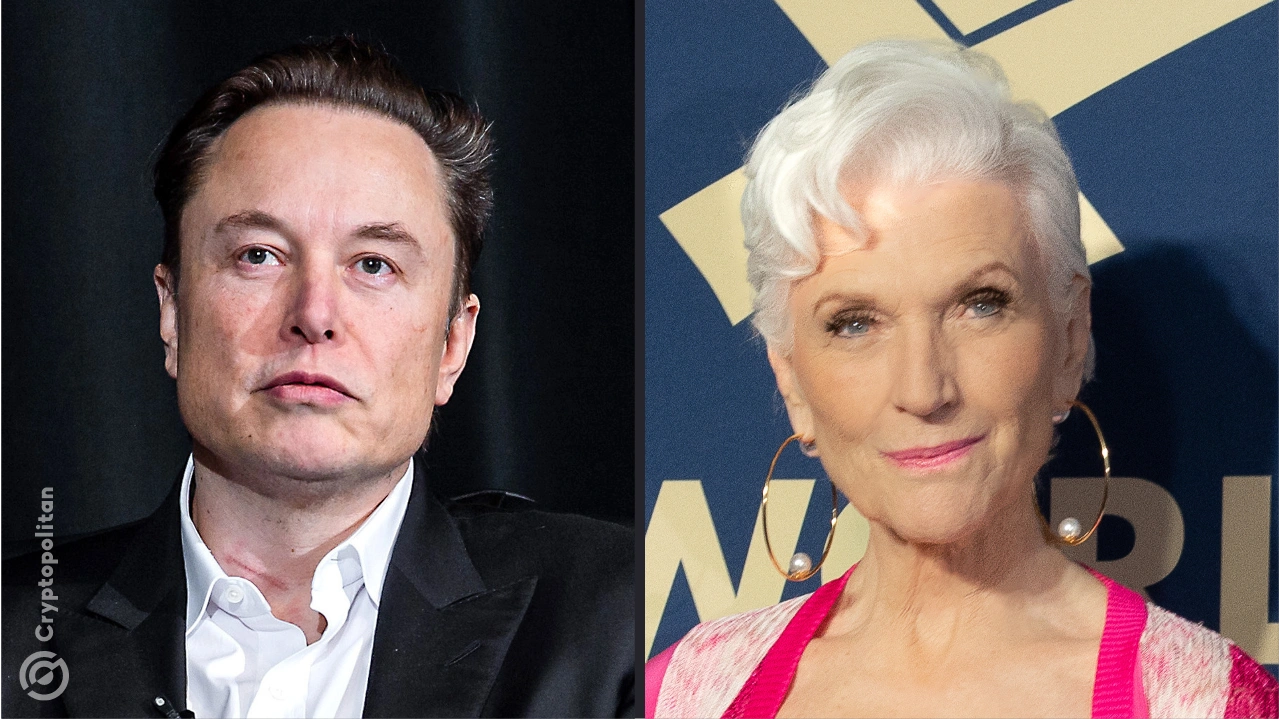Maye Musk, the mother of billionaire entrepreneur Elon Musk, has opened up about her son’s ambitions to tackle inefficiency in the U.S. government. Speaking to FOX News, Maye shed light on D.O.G.E., a newly announced initiative under President-elect Donald Trump.
In the interview, Maye reflected on raising one of the world’s richest men, saying Musk was a “genius” and that people didn’t believe her at the time because he was “shy.” She went on to share her insights on the current state of US government expenditures, which she described as “horrifying.”
'OUT OF CONTROL': @MayeMusk provides insight into @ElonMusk’s and DOGE’s goals as the incoming Trump admin looks to cut wasteful spending with her billionaire son's help. She also reflects on what it was like to raise a "genius" boy who is now one of the world's richest men. pic.twitter.com/MwkhyDC2Ur
— FOX Business (@FoxBusiness) December 16, 2024
Last week, Maye expressed her trust in President-elect Trump’s leadership, reiterating that he just wants to help improve Americans’ lives.
“I think Trump just wants everything to be honest and open so that you know where your tax dollars are going. He’s not going to be mean to people. When I see him, he just seems happy that he can make changes that will improve lives… I think we’re all going to be happier,” Maye told FOX News.
Maye also said that she is happy some Democrats are concerned about how the federal government was spending money “wastefully.” Maye Musk echoed her support for her son leading The Department of Government Efficiency, abbreviated as D.O.G.E., which aims to curb what the incoming administration calls “out of control” government spending.
A project meant to make significant government reforms
D.O.G.E., a nod to Elon Musk’s frequent references to the crypto DOGE coin, was unveiled by Donald Trump in November. Trump likened the initiative to the “Manhattan Project”—the top-secret World War II effort to develop nuclear weapons, calling it a historic effort to streamline federal operations.
“Republican politicians have dreamed about the objectives of D.O.G.E. for a very long time,”
~ Donald Trump
Central to D.O.G.E.’s mission is the reduction of federal regulations, spending, and workforce size. The unofficial government department’s X account highlighted inefficiencies across multiple agencies, including the Department of Defense (DOD), the Department of Education (DOE), and the U.S. Department of Agriculture (USDA), all of which have faced criticism for audit failures or budgetary discrepancies.
D.O.G.E. has set its sights on tackling bureaucratic inefficiency. Among its early pledges is an end to federal telework programs, with a pointed critique of the Biden administration’s recent extension of work-from-home privileges for 42,000 Social Security Administration employees.
If you exclude security guards & maintenance personnel, the number of government workers who show up in person and do 40 hours of work a week is closer to 1%!
Almost no one. https://t.co/4IGzbLqP3R
— Elon Musk (@elonmusk) December 5, 2024
Vivek Ramaswamy, a co-head of the department alongside Musk, has taken issue with the government’s ownership of thousands of vacant buildings, calling it “nuts” and another area ripe for D.O.G.E.’s intervention.
After the Pentagon’s seventh consecutive failed audit was revealed last month, Elon Musk took to Twitter to post “Time for D.O.G.E.,” a statement Ramaswamy echoed while pointing out the Department of Education for similar shortcomings and labeling systemic deficiencies as “utterly unacceptable.”
However, both Musk and Ramaswamy have emphasized that D.O.G.E. will not propose changes to major entitlement programs such as Social Security, Medicare, or Medicaid.
According to a report from the Economic Times, Ramaswamy believes decisions on entitlement reforms would require Congressional input and public debate. Instead, D.O.G.E. will focus on eliminating fraud and abuse in these programs, targeting individuals who improperly receive government funds.
Support and criticism
Critics have raised concerns about the constitutionality and practicality of D.O.G.E.’s mission. Federal budget adjustments typically require congressional approval, and many of the programs D.O.G.E. aims to address are tied to mandatory spending, which accounts for roughly two-thirds of the U.S. budget.
Constitutional experts are also questioning whether D.O.G.E.’s advisory role could overstep into policymaking, potentially clashing with established separation of powers.
Elaine Kamark, a governance specialist at the Brookings Institution, expressed doubts about the feasibility of cutting one-third of government spending, a goal Musk has publicly endorsed.
“You cannot touch people’s Social Security payments or their veterans’ retirement benefits without statutory changes,” Kamark told the BBC. “They don’t have the power to enact any of those.”
Kamark compared D.O.G.E.’s goals to the Clinton administration’s National Performance Review in the 1990s, which successfully reduced federal spending by over a billion dollars and cut 250,000 government jobs. While such efforts are achievable, she argued that the department’s current strategy lacks seriousness.
On the other hand, some aspects of D.O.G.E. have received bipartisan support. Senator Bernie Sanders, an independent who caucuses with Democrats, endorsed Musk’s calls for Pentagon budget cuts, citing its repeated audit failures. Representative Ro Khanna and Representative Jared Moskowitz, both Democrats, have also voiced support for defense spending reductions.
Moskowitz recently joined the House D.O.G.E. caucus, a bipartisan group aiming to trim ineffective government expenditures. “Reducing ineffective government spending should not be a partisan issue,” Moskowitz said in a statement.
A Step-By-Step System To Launching Your Web3 Career and Landing High-Paying Crypto Jobs in 90 Days.





